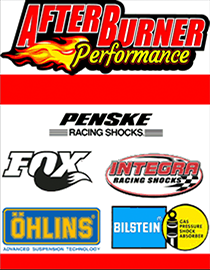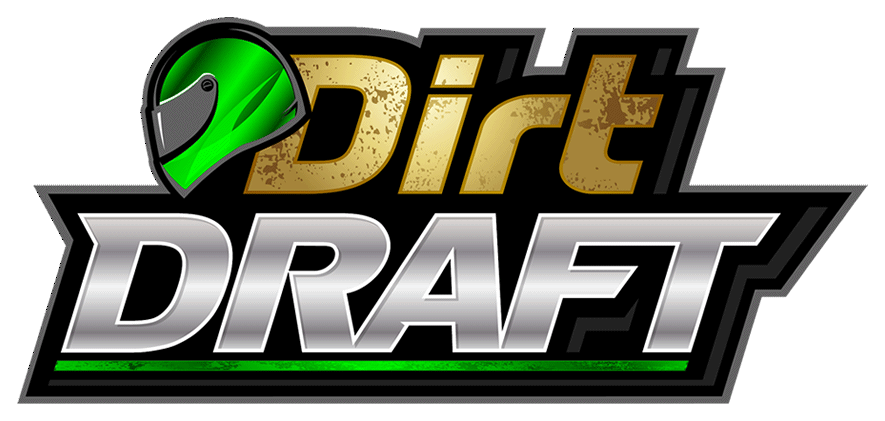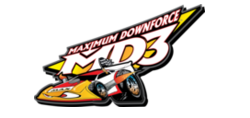
Fast Talk presented by MD3 and Five Star Bodies
Fast Talk: Recounting Speedweeks storylines
With Georgia-Florida Speedweeks behind us, our roundtable considers the busy stretch of racing with the winners, losers, surprises and storylines in the weekly feature presented by Castrol Motor Oil and Fluids (edited for clarity and length):
What Speedweeks storyline most intrigued you?
Kevin Kovac, DirtonDirt.com senior writer: The car counts that the Speedweeks events attracted. A trend of strong turnouts began with this year’s “bonus” Volusia races that effectively started Speedweeks in mid-January — fields in the high 30s were solid for an event held outside Volusia’s normal time frame — and never really waned. All-Tech nearly hit 60 cars, East Bay’s 74.8 average was downright spectacular (up more than 15 cars from 2020), Bubba Raceway Park was in the high 40s and Volusia reached 50 cars despite a lengthy break in Speedweeks action preceding it. Was the influx of cars indicative of teams being more ready to race because the coronavirus situation hampered their ’20 seasons, or is it a sign that car counts will be up overall this year?
Todd Turner, DirtonDirt.com managing editor: Outside the racing itself, I'd says its the continued evolution of the Speedweeks schedule with 2022's already-announced slate mostly mirroring the extended 2021 schedule. Whereas years ago Speedweeks was a briefish winter respite, between Arizona's Wild West Shootout and Speedweeks next season, we've got 29 races scheduled — and that's before other Georgia and Florida tracks add potential non-national touring events. Winter racing action has grown into something bigger and, in some ways, the sport now has two mini offseasons — December and post-Speedweeks before spring breaks further north.
Robert Holman, DirtonDirt.com weekend editor: The thing that stood out to me — beyond the excruciating schedule — was the parity among winners. No driver won more than twice and only three drivers managed that feat. I think it bodes well for the sport in general and the 2021 season specifically.
Dustin Jarrett, DirtonDirt.com staffer: For me, it's the storyline that we look at post-Speedweeks every year: who will stay hot heading into racing's regular season? Guys like Devin Moran, Hudson O'Neal, Tyler Erb, and Kyle Bronson all impressed during Speedweeks, but can they keep the momentum going into the heart of the season? Of that group I mentioned, only Erb finished in the top five in national touring points last season. While Speedweeks is a grind in itself, these drivers all know the real test comes in the middle of summer when you're running on fumes and running out of patience.
Joshua Joiner, DirtonDirt.com staff writer: This may be perhaps a bit of old news, but I’m still blown away by the amount of live streaming available for fans and racers back home to follow all of the Speedweeks action. Over the past few years, I haven’t followed the sport nationally as closely as I have since returning to the DoD staff last summer, so this was my first Speedweeks being able to watch pretty much every lap of racing on my phone or on my living room TV. I think that extra attention is only going to help Speedweeks grow in the years ahead. As more and more people watch, I’m sure there will be many of them that start planning their own Speedweeks trips.
React to this tidbit: No Volusia winner entered half of last year's WoO events.
Turner: Not a tremendous surprise, especially when you consider that outside Brandon Sheppard, only one driver (Mike Marlar in 2019) over the past four DIRTcar Nationals has been a Volusia winner as a WoO regular the previous season. It does highlight the fact that, after Sheppard, WoO regulars face bigger challengers when winning the events that include all-comers, such as Eldora's and other major events.
Jarrett: Given the current parity in the sport, I'm not really surprised. While the World of Outlaws certainly has capable drivers and tons of talent, their roster doesn't boast names that have performed well in recent years at Volusia ... outside of Brandon Sheppard, of course. Kyle Strickler will certainly buck that trend in 2021, and others seem to be just on the cusp of finding victory lane at the big half-mile. I'll say the bigger surprise — already well-documented — is Brandon Sheppard going winless at Volusia.
Joiner: I think it’s only surprising because one specific WoO regular didn’t win at Volusia: Brandon Sheppard. Much has already been said about the Rocket house car team’s subpar Speedweeks performance, so I won’t add much other than saying that they better get things turned around quickly when the tour gets back rolling in March. That being said, I think it’s worth remembering that five races at the same track do not necessarily foretell how an entire nation tour’s season will go. Storylines that dominate Speedweeks are often forgetting quickly when regular season action gets into full swing. I expect that will hold true for this storyline as well.
Holman: With the level of competition out there now, that’s not a shock at all. In a field of 50 drivers, there are easily 25 who have a legitimate chance to win on any given night. Granted, there may be only 10 or who have a chance to run consistently fast enough to win more than once or twice, but there are a good two dozen who, if they should win, shouldn’t come as a surprise.
Kovac: That’s not really surprising because of the sheer competitiveness of Volusia’s field. And not for nothing, but maybe, with so many points races at Volusia to kick off the WoO season, the tour regulars had to be a bit more conservative with their setup choices and driving styles than the non-regulars with no worries about leaving Speedweeks well behind in the standings. There’s no doubt, though, that the 2020 WoO points-chasers most likely to win at Volusia — Brandon Sheppard, Ricky Weiss, Cade Dillard, Darrell Lanigan, Dennis Erb Jr., Scott Bloomquist — struggled throughout the week.
How can teams avoid getting too low — or too high — based on Speedweeks performances?
Holman: I think just like we’ve talked about before, and like many drivers and teams will tell you, you just take Speedweeks with a grain of salt and move on. There’s a lot of racing in a short time, so you hardly have time to dwell on your performance during Speedweeks itself. And once it’s over you just have to move on. Speedweeks is unique in that the car counts are high and the tracks aren’t really like those the drivers will see the rest of the season, so you have to keep that in mind.
Joiner: Todd mentioned this in an earlier response, but I think Speedweeks is becoming more and more like a season within itself, meaning the time between Speedweeks and the start of the regular season can be almost be treated as an offseason. It’s a chance for teams to cool their jets and regroup before tackling the full season with a fresh approach that isn’t contingent on how they performed in Florida.
Jarrett: I used to think starting the season off with a poor performance in Speedweeks was a strong indicator as to how the season was going to go. I think now most would agree that's not necessarily the case and part of the reason is the racing season is longer now than it's ever been. Whether you're in the outhouse or in the penthouse after Florida, you have to know and understand how much racing there still is in 2021. I firmly believe there isn't a more humbling sport in the world than this one. It can take a while to climb to the top, but it doesn't long to get knocked back down to reality. Likewise, a lackluster start to the season might just be the fuel needed to motivate a team.
Kovac: There’s long been one truism of Speedweeks tracks: they’re not like any other places drivers will run all year. That seemed especially true this year at East Bay and Volusia, which proved even more challenging to racers than usual. All teams need to remind themselves of that fact no matter how they fared, though there certainly is something to be said for the effect that winning even a single race during Speedweeks has on a driver and crew’s psyche. At the same time, though, if a powerhouse team accustomed to capturing multiple races during Speedweeks goes winless — like Brandon Sheppard and the Rocket house car gang just did — it’s crazy to say they won’t take some post-Speedweeks time to reevaluate their direction to get back on track.
Turner: There's such a microscope on these races there's a tendency to make them bigger than what they are, at least as far as a season-long points chase goes. Do you want to get off to a good start? Obviously. But the math works the same for a team that has a solid (or disastrous) month-long stretch during the regular season. A team's focus should be on performing well at the team's best tracks, and holding the line at the tracks where the team is more likely to struggle.
Extol a Speedweeks driver who performed better than you expected.
Jarrett: I could wax poetic about several drivers, but I think Hudson O'Neal went above and beyond my expectations. Everyone knows Hudson has a massive amount of talent. And we also know Roger Sellers fields a solid racing operation. But let's not kid ourselves: new alliances in racing don't always gel right out of the gate. From working in rhythm with the new operation to getting acclimated behind the seat of someone else's car, there's a lot that goes into a new driver-team combo. Hud was fast right out of the gate and only finished worse than eighth once at East Bay. In comparison, last year his best finish at East Bay (including the May races) was eighth. It's a solid turnaround for Hudson and he and the team have to be motivated by their strong finishes.
Joiner: I’ll give a shoutout to Tyler Bruening here. His performance at Volusia was particularly impressive with five top-10 finishes in the seven races between the Sunshine Nationals and the DIRTcar Nationals. Four of those top-10s came in the five WoO races, putting him a solid fourth in WoO points leaving Volusia. While he wasn’t nearly as consistent on the Lucas Oil side, he logged his best national tour performance in finishing second in East Bay’s Friday night race. Sitting way back in 18th in Lucas Oil points, it’ll be interesting to see which tour he picks to follow this season. Either way, his second season of national touring is promising to be much improved over his rookie Lucas Oil run last year.
Turner: I'd prefer focusing on less heralded drivers, but outside a few individual runs (Brent Larson's in Volusia's last race, for instance), no one consistently impressed. I think I'll go with Bobby Pierce. After a middling performance in Arizona, the team was originally going to wait for spring racing. Instead, they switched up with plans to not only run at East Bay, but stick around for Volusia to become one of the best performers near Daytona. I know it's would, coulda, shoulda, but had Pierce's engine swap been quick enough before Volusia's last race — and had Pierce won — it would've cemented his vast improvement throughout the winter stretch.
Holman: Todd is right in that no driver jumps off the charts in terms of having a standout Speedweeks. To note, only five drivers managed at least five top-five finishes during the entire month-long stretch, led by Devin Moran’s nine top-fives. As for my expectations, I was impressed with Tony Jackson Jr.’s effort. His best finish was sixth, but he qualified for 12 of the 16 races he entered and ran up front for a while in the Volusia finale before fading to 19th. For a driver who’s not known for entering Speedweeks events, I was impressed.
Kovac: Seeing Devin Moran run well at East Bay (three top fives) was no surprise, but his superb performance at Volusia — one win, two seconds, a third and a DNF due to a broken driveshaft while in second place — truly came out of nowhere. I didn’t even realize he was planning to run Volusia (Moran and his car owner, Tye Twarog, made the decision to stay in Florida less than a week before the DIRTcar Nationals opener), so that alone makes his nightly strength unexpected. But add in Moran’s unspectacular previous history at Volusia (not a single top-five in 13 starts from 2017-19) and his results were arguably the story of Speedweeks.
Considering the top 10 drivers among age groups, are the sport's best racers in their 20s, 30s, 40s or 50s?
Joiner: This is a tough one. I think the talent is fairly evenly spread between those age groups with the 20s and 40s holding a slight edge over 30s and 50s. It’ll be interesting to reevaluate this in a few years when many of the current twentysomethings have reached their 30s. With the guys like Brandon Sheppard, Bobby Pierce, Brandon Overton and others finding success at relatively young ages, will they be able to continue that and establish longevity similar to that of Scott Bloomquist and Billy Moyer or does burnout or other factors limit their success?
Jarrett: I really don't want to answer this question because, truthfully, a good case could be made for every age group. For argument's sake, I'll go with the young guns who are seemingly fearless with their driving styles and have accomplished a lot in a little amount of time. Brandon Sheppard, Bobby Pierce, Brandon Overton, Devin Moran, Tyler Erb and Hudson O'Neal are all a bunch of throttle-mashers who are legit threats to win at any event they enter. They all adapt well to change, can win on any racing surface, and just an entertaining group to watch.
Turner: That's a tough one, and I suppose a full statistical analysis is required for a fully accurate answer. But seat of the pants answer? My gut says — at least considering the number of them — the thirtysomethings don't rank as high as they should, considering that's likely a driver's prime. I think I'd lean toward the 40s on top, then the 20s, and perhaps the 30s edging the 50s, a group that still remarkably potent. The youngsters got the best of their older counterparts at Speedweeks, but over the long haul, the sport tends to reward experience.
Holman: It’s hard to bet against the drivers in their 40s, and I’m not just saying that because I just turned 50 myself. I think that the way you have to hustle these cars around the track these days favors the younger crowd over the group nearing the twilight of their career, but there’s just something to be said for experienced drivers. The guys in their 40s still have the best of both worlds — the ability to hustle the car around without being totally exhausted and the experience needed to be in that position to start with.
Kovac: Like Todd mentioned, this question is probably deserving of a deeper statistical dive (calling stat-master Andy Savary!) But as prolific and comfortable with today’s hard driving as so many twentysomethings are, experience will always be key in racing and the 40s age group currently possesses the drivers most able to blend savvy and modern aggressiveness for the long haul. I think I’d give the 20s the second spot in the rankings, but the 30s are coming on strong led by Jonathan Davenport and Josh Richards and with new additions like Ricky Thornton Jr., Kyle Strickler, Kyle Bronson and Brandon Overton (who moves up to the 30 age group on April 13).

















































